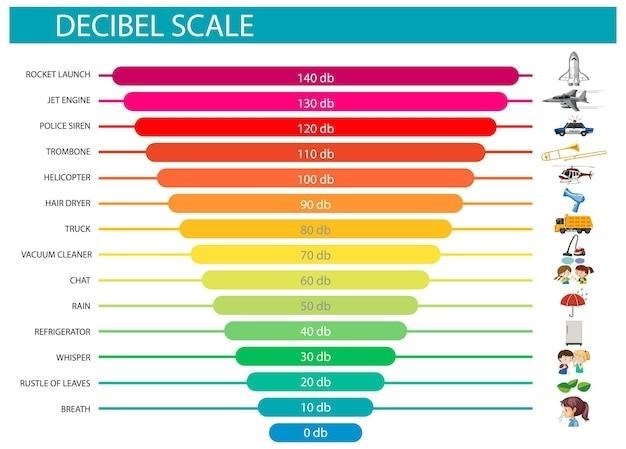Social-Emotional Learning Activities PDF Free⁚ A Comprehensive Guide
This comprehensive guide provides a wealth of free social-emotional learning (SEL) activities in PDF format, designed to empower children and teenagers with the essential skills needed for social and emotional success. Discover a wide range of worksheets, games, read-aloud lists, curriculum resources, and more, all tailored to different age groups and specific needs.
What is Social-Emotional Learning (SEL)?
Social-emotional learning (SEL) is a process that equips individuals with the knowledge, skills, and attitudes necessary to navigate the complexities of social and emotional life effectively. It encompasses a range of abilities, including self-awareness, self-management, social awareness, relationship skills, and responsible decision-making. SEL goes beyond traditional academic learning, focusing on developing emotional intelligence, empathy, and interpersonal skills.
At its core, SEL emphasizes understanding and managing one’s own emotions, building healthy relationships, making responsible choices, and contributing positively to society. It is a holistic approach that recognizes the interconnectedness of social, emotional, and academic development, fostering well-rounded individuals who are prepared to thrive in all aspects of life.

The Importance of SEL for Children and Teenagers
Social-emotional learning (SEL) plays a vital role in the healthy development of children and teenagers, equipping them with the skills and resilience needed to navigate the challenges of life. SEL helps young people understand and manage their emotions, build strong relationships, make responsible decisions, and contribute positively to their communities.
By fostering self-awareness, empathy, and communication skills, SEL empowers children to understand their own feelings and those of others. It also equips them with strategies for coping with stress, resolving conflicts peacefully, and setting appropriate boundaries. This foundation of social-emotional competence lays the groundwork for academic success, personal well-being, and healthy relationships throughout their lives.
The Five Core Competencies of SEL
The Collaborative for Academic, Social, and Emotional Learning (CASEL) identifies five core competencies that form the foundation of social-emotional learning⁚
- Self-Awareness⁚ Understanding one’s own emotions, strengths, weaknesses, values, and motivations;
- Self-Management⁚ Regulating emotions, thoughts, and behaviors effectively in different situations and working towards setting and achieving goals. This includes managing stress, controlling impulses, and motivating oneself.
- Social Awareness⁚ Recognizing and understanding the emotions, perspectives, and experiences of others.
- Relationship Skills⁚ Building and maintaining healthy relationships, communicating effectively, cooperating with others, and resolving conflicts constructively.
- Responsible Decision-Making⁚ Considering ethical implications, making thoughtful choices, and taking responsibility for actions.
These competencies are interconnected and work together to create a well-rounded individual who can thrive in both personal and professional settings.
Free SEL Resources Available Online
The digital world offers a treasure trove of free SEL resources, making it easier than ever to incorporate these essential skills into daily life. From engaging worksheets and games to comprehensive curriculum plans and read-aloud lists, there’s something for everyone. Numerous websites and organizations dedicate themselves to providing high-quality SEL materials, catering to diverse age groups and learning styles. These resources are readily accessible, allowing educators, parents, and individuals to access valuable tools for fostering social and emotional well-being.
4.1. Worksheets and Activities for Different Age Groups
Finding age-appropriate SEL activities is crucial for effective learning. Fortunately, a plethora of free printable worksheets and activities cater to various age groups, from preschoolers to teenagers. These resources often focus on specific SEL skills, such as self-awareness, self-management, social awareness, relationship skills, and responsible decision-making. They use engaging formats like coloring pages, puzzles, games, and scenarios to make learning fun and accessible. Whether you’re a teacher looking for classroom materials or a parent seeking activities for home, these resources provide a valuable tool for fostering SEL skills in children and teens.
4.2; SEL Games and Activities for Children
Learning social-emotional skills doesn’t have to be a chore for children. There are countless free games and activities that make SEL fun and engaging. These resources often utilize interactive elements, like role-playing, storytelling, and collaborative problem-solving, to help children develop essential skills like empathy, communication, and conflict resolution. From simple card games that teach emotional recognition to board games that encourage teamwork and cooperation, these activities provide a playful approach to learning valuable social and emotional skills.
4.3. Printable Read Aloud Lists for SEL Skills
Reading aloud is a powerful tool for fostering social-emotional learning; These printable lists offer curated selections of children’s books, categorized by specific SEL skills. From stories about managing emotions to tales that promote empathy and kindness, these resources provide educators and parents with a ready-made library of engaging narratives to introduce important social-emotional concepts. The lists often include age-appropriate recommendations, making it easy to find books that resonate with different developmental stages. These read-aloud lists provide a valuable resource for fostering social-emotional growth through the magic of storytelling.
4.4. Free SEL Curriculum for Teachers
Numerous online resources offer free SEL curriculum for teachers, providing comprehensive programs designed to integrate social-emotional learning into the classroom. These curricula often align with established frameworks, such as CASEL’s Five Core Competencies, ensuring a structured approach to SEL development. They provide lesson plans, activities, and assessments, making it easy for teachers to implement SEL effectively. Some resources offer specialized curricula for specific grade levels or subject areas, catering to the unique needs of different classrooms. By providing teachers with readily accessible, high-quality SEL curriculum, these resources empower educators to cultivate a positive and supportive learning environment that fosters the social and emotional well-being of their students.
4.5. SEL Resources for Specific Needs
Recognizing the diverse needs of children and teenagers, many online resources offer specialized SEL materials tailored to specific challenges or demographics. These resources address issues like anger management, anxiety, low self-esteem, and social skills development. They provide worksheets, activities, and guidance for navigating these specific challenges, offering practical tools for coping and building resilience. Additionally, some resources cater to specific needs, such as SEL materials for students with disabilities or those experiencing trauma. These resources ensure that every child has access to the support and tools they need to thrive, promoting inclusivity and addressing individual needs within the broader framework of SEL.
Benefits of Using SEL Activities
Incorporating SEL activities into learning environments yields numerous benefits for children and teenagers. These activities foster self-awareness, helping individuals understand their emotions, strengths, and weaknesses. They also promote self-management, empowering students to regulate their emotions, control impulses, and make responsible decisions. Furthermore, SEL activities enhance social awareness, enabling individuals to empathize with others, understand diverse perspectives, and build healthy relationships. By developing these crucial skills, SEL activities contribute to improved academic performance, reduced behavioral issues, and increased overall well-being. Ultimately, SEL activities equip children with the tools they need to navigate life’s challenges successfully and build fulfilling, positive relationships.
How to Implement SEL Activities in the Classroom
Integrating SEL activities into the classroom requires a thoughtful and strategic approach. Begin by creating a safe and supportive learning environment where students feel comfortable expressing their emotions and taking risks. Incorporate SEL activities into daily routines, such as morning meetings or transitions between lessons. Choose activities that align with students’ developmental stages and learning objectives. Offer opportunities for students to practice SEL skills through role-playing, group discussions, and collaborative projects. Regularly assess students’ progress and adjust activities as needed. Remember that SEL is an ongoing process, and consistent effort is key to fostering a classroom culture that values social and emotional well-being.
Tips for Parents and Educators
Parents and educators play a crucial role in fostering children’s social-emotional development. Model positive social-emotional behaviors by demonstrating empathy, self-regulation, and healthy communication. Create opportunities for children to practice SEL skills in everyday situations, such as during family meals, playtime, or community events. Use age-appropriate language to discuss emotions and provide tools for children to manage their feelings. Encourage children to express their emotions in healthy ways through art, music, writing, or physical activity. Collaborate with other parents, teachers, and community members to create a supportive network for children’s social-emotional growth. By working together, we can equip children with the essential skills they need to thrive in all aspects of their lives.
Conclusion
In conclusion, social-emotional learning is an essential component of a child’s overall well-being and academic success. By incorporating SEL activities into the classroom and home, we can empower children to develop essential skills like self-awareness, self-management, social awareness, relationship skills, and responsible decision-making. These skills are critical for navigating the complexities of life, building healthy relationships, and achieving personal and academic goals. The wealth of free SEL resources available online offers a valuable starting point for parents, educators, and anyone interested in fostering social-emotional growth. By utilizing these resources and implementing SEL practices, we can create a more supportive and nurturing environment for children to thrive.



